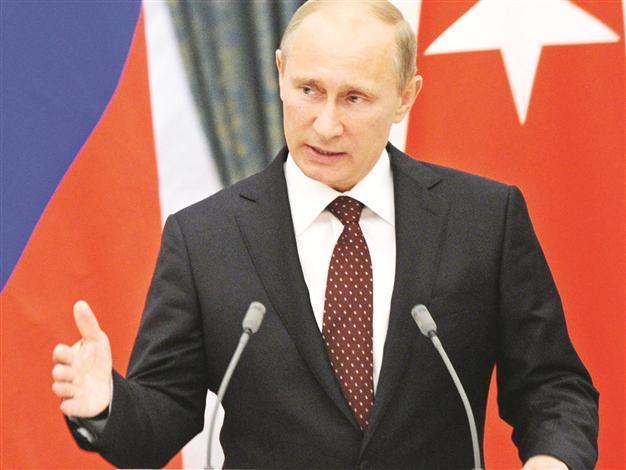After 18-year-long wait, Russia joins trade club
ISTANBUL

The WTO group needs Russia more than Russia needs the trade club, Putin has recently said.
Russia crowned its almost two-decade-long entry into capitalism with a long-awaited membership into the World Trade Organization (WTO). The country’s official acceptance into the “free-trade world” is far from being only a symbolic event.Many economists think the transition will add an additional tenth of Russia’s gross product to its $2 trillion economy and finally herald the end of an era riddled with bureaucratic mismanagement and impenetrable red tape.
However, smaller entrepreneurs complain that a flood of more attractive foreign products could simply wipe them out of business and leave Russia without the domestic industry necessary for achieving sustainable growth.
The Geneva-based institution’s 156th member had spent years harboring a deep suspicion over dropping its own growth model of strong state enterprise for one practiced over many centuries in rival capitalist countries.
Russian President Vladimir Putin signed the accession document — a final step clearing the way for Wednesday’s formal entry — on July 21, after once saying the WTO group needed Russia more than they needed them.
Vanuatu grabbed the 157th seat at the trade negotiating table. “Both accessions show that joining the WTO remains high on the countries’ agendas since trade can bring a predictable and stable basis for economic growth,” WTO Director General Pascal Lamy said in a statement.
Hopes for Europe
EU trade commissioner Karel De Gucht hailed Russia’s WTO entry as a major boost for the recession-threatened European economy Aug. 22.
“Today’s WTO accession is a major step for Russia’s further integration into the world economy,” De Gucht said in a statement.
The accession of Russia to the organization “will facilitate investment and trade, help to accelerate the modernization of the Russian economy and offer plenty of business opportunities for both Russian and European companies.” De Gucht said. “I trust that Russia will meet the international trading rules and standards to which it has committed.”
“In the absence of wider reform to clean up the business environment, even the longer-term benefits are likely to disappoint,” the London-based Capital Economics research consultancy cautioned, Agence France-Presse reported yesterday. The more upbeat analysts predicted an 11-percent gain in gross domestic product for Russia over the long term.
“Accession into international institutions such as the WTO lends Russia the credibility it needs to shore up the country’s investment environment,” Renaissance Capital said in a special report. But the bank also stressed that it was now up to officials to take the next step of actually doing away with the reams of paperwork and bureaucratic procedures that could keep businesses’ competitive spirits flowing.
“[Is it a] big step in the right direction? Yes, but only if Russia makes the most of it,” Renaissance Capital said. Moscow’s negotiators, meanwhile, said their immediate task now was focused on securing quick WTO membership for Belarus and Kazakhstan — two ex-Soviet countries with command economies that are joined to Russia in a loose customs union.
“Kazakhstan is an absolute priority,” chief negotiator Maxim Medvedkov told the government’s Rossiyskaya Gazeta daily. “And we have to help Belarus.”
















